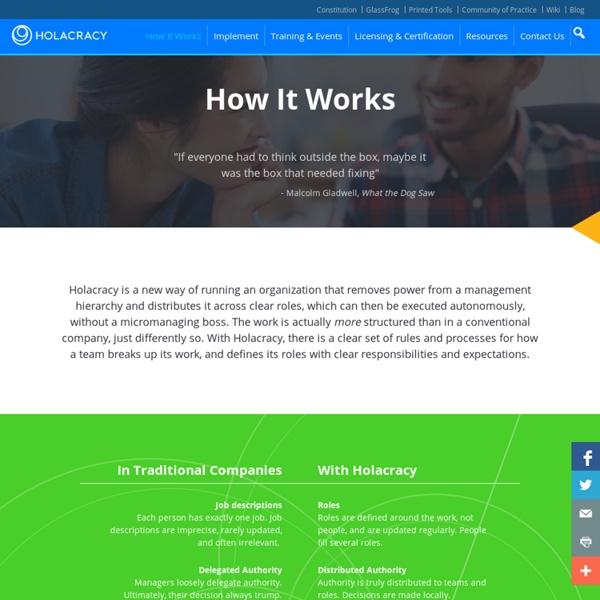kimono : Turn websites into structured APIs from your browser in seconds
UTM - MSHS-T - Expertise et compétence des chercheurs en Sciences humaines et sociales (SHS)
Cécile Fabre, Linguiste informaticienne, Maître de conférence dans le laboratoire Cognition Langues Langage Ergonomie (CLLE) Comment peut-on utiliser les compétences d’un linguiste informaticien ? Le linguiste informaticien intervient pour mettre en place, évaluer, améliorer des dispositifs de traitement de données langagières par ordinateur, pour des objectifs applicatifs divers relevant du champ de l’ingénierie linguistique : recherche et extraction d’information, traduction automatique ou assistée, aide à la rédaction, gestion documentaire, analyse de contenu, traitement de la parole, etc.
weworkunbound.com
SHSdocNET : portail de compétences et expertises | Institut des Sciences de l'Homme
Le portail SHSdocNET est développé par l’Institut des Sciences de l’Homme, en partenariat avec 36 laboratoires de recherche en SHS du Pôle de Recherche et d’Enseignement Supérieur de Lyon et St-Etienne. >> Portail SHSdocNET>> SHSdocNET : présentation du projet (pdf) Genèse Le projet SHSdocNET a été lancé à la suite d’un besoin exprimé par des acteurs à la fois locaux et nationaux de disposer d’un moyen rapide pour identifier les compétences en SHS dans un espace donné. Cette problématique qui vise à cartographier les compétences scientifiques fait également l’objet d’un intérêt grandissant auprès des acteurs internationaux et des grandes sociétés comme Microsoft avec son projet Academia et d’autres projets bien avancés comme LinkedIn ou ResearchGate. Besoins visés SHSdocNET vise à fournir deux types de services. Le premier est une aide à la veille scientifique et technique. Le second est une plateforme d’outils d’analyses rétrospectives pour les décideurs publics ou privés. Guide pratique
Needle-Moving Collective Impact Guide: Community Collaborative Life Stages
Introduction Collaboration has long been a part of the social sector. But many have also experienced collaboratives that do not live up to their potential in one way or another—nothing happens between meetings, the group never reaches real agreement, the group loses steam as participants transition in and out, or the collaborative falls apart as participants jockey to claim whatever successes emerge. There is an exciting groundswell right now in a new kind of collaborative that may hold the key to addressing some of these problems. The overarching difference we have experienced in these collaboratives is seriousness about having real, concrete impact on a community-wide goal. Unsatisfied with small gains for a smaller segment of the population, the leaders of these new collaboratives have put forth ambitious goals and backed them up with long-term investments of resources and effort. Do we aim to effect "needle-moving" change (i.e., 10 percent or more) on a community-wide metric?
The creation of a new service to unlock research expertise – and you hold the key | The Alliance for Useful Evidence
A new evidence matchmaking service for politicians and researchers was launched this week. Dr Chris Chambers explains in this guest blog how the new initiative will connect the collective expertise of UK research professionals, with UK politicians and civil servants; in order to develop a UK Evidence Information Service, EIS. Stop for a moment and ask, how many scientists and researchers in the UK contribute to policy making? It’s a difficult question to answer, but the numbers are not high. This divide raises some challenging questions. We think we can do more – a lot more – which is why we’re proposing a UK Evidence Information Service, or EIS. The EIS will be a water fountain that politicians and civil servants can dip into whenever they need rapid discussion with professional researchers. The EIS will also reach beyond the traditional sciences to include evidence-based social sciences and the humanities. Co-founders of the Evidence Information Service:
How to Grow a High Performance Organization | Tolero Solutions
To help your organization be a high performance organization and facilitate sustainable growth we share tips, quotes and actions you can follow to help you reach success! Click Here To Learn More 11/18/14: Innovation is imperative to continued growth and success. Are you innovative? To be an innovative organization you must create a culture that fosters open communication and collaboration, engages your talent and has streamlined and flexible processes. 11/4/14: To be most productive and successful you need to be responsive - your organization must be agile – easily adaptable to internal and external changes. 10/21/14: To be a successful manager requires making the time to clearly communicate with your team. 10-14-14: High performing teams don’t just happen. 9-16-14: When attempting to gain employee engagement and commitment – you must communicate in an honest and transparent manner. 9-9-14: How you communicate is just as important as what you communicate. 6-9-14: Are you setting goals?
Consortium de Validation Thématique en Sciences Humaines et Sociales
Project Decelerators – Lack of Stakeholder Support - UCSC Extension in Silicon Valley
As we discussed yesterday, there are many project decelerators, among them lack of stakeholder support. Whether the stakeholders support your project or not, if they are important to your project, you must secure their support. How do you do that? First, you must identify who your stakeholders are. Just because they are important in the organization does not necessarily mean they are important to your project. Second, you need to determine what power they have and what their intentions towards your project are. Source: p. 26 Third, what’s the relationship among stakeholders? Now that you have this information, you can complete a stakeholder analysis template that will help you define your strategies to improve their support: Finally, a key piece of your stakeholder management efforts is the constant communication to your stakeholders. Communications Plan Template So, here are the basics of stakeholder management.



